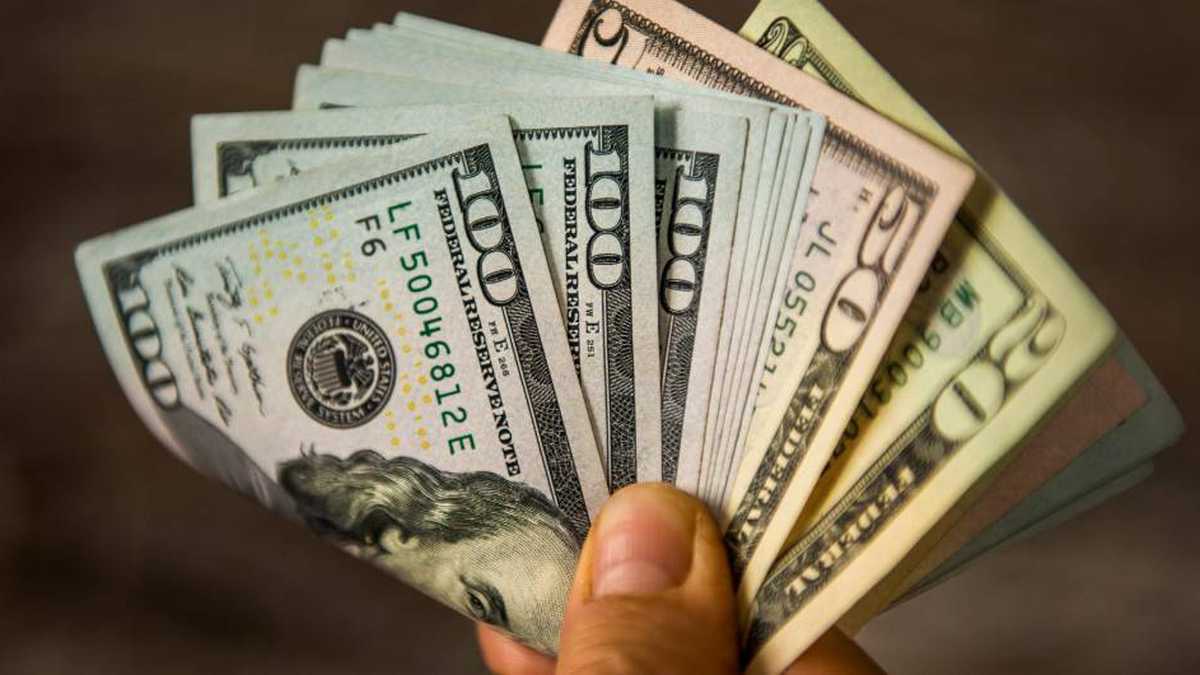The United States, the world’s largest economy, is in the midst of a storm. Its growth suffered two consecutive quarters of economic contraction. It is a milestone cataloged as a “technical recession “, although in many countries it is considered a recession with all its letters.
This is not the case in the United States, where the authorities are awaiting other data to confirm whether the economy has really entered recessionary territory. It is a scenario defined by many US experts as “a significant decline in economic activity that spreads throughout the economy and lasts more than a few months.”
The key data released is that the country’s annualized Gross Domestic Product (GDP) decreased 0.9% in the second quarter. This adds to the fall of 1.6% in the first quarter. Thus, with these numbers in the red, expectations that the country would resist the fall despite the current economic slowdown are erased at a stroke.
Business investment, the real estate market and construction fell. Consumer spending slowed and incomes fell (adjusted for inflation), according to data released by the US Commerce Department.
These signs appear in the midst of record inflation (9.1%, the largest increase in 40 years). Also, a rapid increase in interest rates and the fall in economic growth, a cocktail that continues to fuel concern.
“Doesn’t look like a recession to me”
To deal with the headwind, the Federal Reserve (equivalent to the Central Bank in other countries) has been trying to cool down the economy. This in an attempt to control inflation.
For its part, the White House has argued that the current slowdown is part of an inevitable transition to a period of more stable growth.US President Joe Biden rejected claims that the country is in a recession. This after the economic contraction for the second consecutive quarter was announced. Biden pointed to strong job growth and a rebound in manufacturing, adding, “That doesn’t look like a recession to me.”
After last year’s historic economic growth, and recovering all the private sector jobs lost during the pandemic crisis, it is not surprising that the economy is slowing down.
The president’s reaction adds to the statements of Treasury Secretary Janet Yellen. A few days ago, she had highlighted the good performance of the labor market, and of the president of the Federal Reserve, Jerome Powell, who after announcing on Wednesday an increase of 0.75 basis points in interest rates, tried to clear the clouds on the horizon. “I don’t think the United States is currently in a recession. And the reason is that there are too many areas of the economy that are doing very well,” Powell said.
Heated debate
The discussion about whether or not the United States is in a recession is a subject that generates heated debate. “The last time we saw inflation this high, in the 1980s, we had a pretty deep recession,” Laura Veldkamp, a finance professor at Columbia University Business School, said. The country has learned from that experience, she added, raising hopes of a milder recession.
But one of the great fears among economists is that the aggressive moves of the Federal Reserve (which has been raising interest rates with the aim of reducing inflation) will affect growth and cause the recessionary scenario.
Both the markets and the politicians and economists have been closely following the evolution of the labor market, a key element to shed light on the potential arrival of the dreaded recessionary wave. So far, the level of unemployment remains at 3.6%.
Where is the danger?
Harvard University professor Jeffrey Frankel argued that “the odds of a recession occurring are substantially higher than for any other year. “The strongest pressures come from the external front, he argued. The slowdown in China and Europe, which have been hit hardest by rising energy prices from the war in Ukraine, adds to the risks. “Many other countries have more serious problems … it is very likely that they will be affected and that could spill over to us,” Frankel said.
The main danger of the current scenario, beyond the technical discussion about what a recession is, analysts point out, is that there is a kind of “contagion effect” between the economies.
Either because Europe or China slow down and end up affecting the United States. Or because – the other way around – the United States plunges into recessive waters and affects others. But in addition, the close interconnection between the economies means that the ups and downs on one side of the planet are amplified towards the rest.
Markets, anticipating a possible global recession, have been shedding risky investments. This to cover the potential downpour or reducing future contracts in the purchase of some raw materials.
Stagflation
In the midst of rapidly expanding stagflation (high inflation with low growth) around the world, the risk of recession is perceived by some as just around the corner. “Deepening stagflation and risk of #recession flashing red,” prominent economist Mohamed El Erian posted on Twitter.
Some experts are more cautious about the idea of recessionary contagion from the United States to other parts of the world. “At the moment we do not expect the GDP of the United States to slow down to the point that it risks creating a chain reaction,” Cailin Birch, an economist at the Economist Intelligence Unit think tank, said.
“Recession risks are high for a number of countries, particularly in Europe,” he added. But these risks “are primarily due to the economic fallout from the war in Ukraine and, to a lesser extent, the disruptions to trade and manufacturing created by the COVID lockdowns in China.”
Much slower growth in the US would translate into lower import demand and lower foreign investment. But “this is likely to represent a drag on growth, rather than a serious recession risk in most cases,” Birch argued.
How can it affect Latin America?
From his perspective, the recent strengthening of the US dollar presents risks for several economies. “This is particularly true for Latin America, which has strong trade links with the United States.”
In that sense, he argued, the weaker economic outlook for the United States has increased the demand for dollars as a safe haven, further strengthening the currency.
In the case of heavily indebted Latin American countries in the US currency, the stronger dollar and higher interest rates “will make debt interest payments much more difficult to withstand,” the economist explained.
For José Luis de la Cruz, director of the Institute for Industrial Development and Economic Growth (IDIC) of Mexico, the most worrying thing about the US economic scenario is that domestic consumption has weakened, as well as private investment.
In any case, said the economist in dialogue with BBC Mundo, “there are chiaroscuro” in the current context, given that industrial production has continued to advance.
However, as the US economy weakens, the effects are reaching trading partners such as China, Mexico, Canada and the European Union, due to the high level of trade.
A shock waves
“An expansion wave is produced where foreign trade is affected,” said de la Cruz. Another channel of contagion or “transmission factor” abroad is the weakening of money flows from the US. But, at the same time, a slowdown increases the flow of capital from abroad to the United States, as investors seek to protect themselves from storms.
In this sense, Latin America is quite exposed to capital flight towards the world’s leading economy. On the other hand, if the United States continues to slow down, this will affect the exports that Latin American countries send to that market, reducing an important source of income. To this we must add, said the economist, that the price of raw materials has fallen, which affects a drop in income.
Looking at the longer term, José Luis de la Cruz warned that if the United States falls into a recession, “this opens the door for China in Latin America to buy more commodities” and strengthen its presence in the region. (https://thecostaricanews.com/the-us-enters-a-technical-recession-why-it-is-dangerous-and-how-it-can-affect-latin-america/)



































